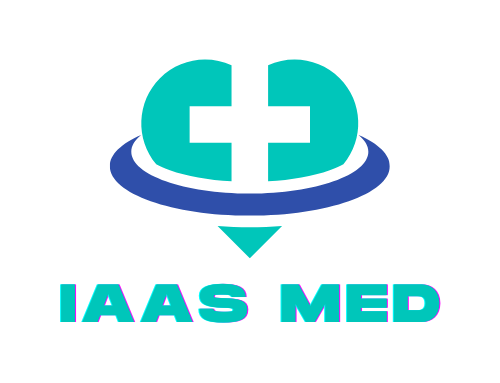The healthcare education sector is undergoing significant evaluation of what many recognize as the education bubble.
With the costs being at levels never seen before, knowing exactly how to evaluate the value of investing in healthcare education is the only way to ensure making a proper decision.
Naturally, it is a vast topic that requires having an insight into numerous factors.
Let us talk about it.
The Economics of Healthcare Education

The rise in tuition fees for healthcare education, especially within medical schools, reached levels many are beginning to doubt long-term viability.
Cost growth is not exclusive to the field of medicine alone but is reflective of a broader trend seen across many specialized educational tracks. If you are interested in taking a look at one of these, visit https://onlinedegrees.rockhurst.edu.
The burden on students intensifies, making it imperative to critically evaluate whether the financial investment required for healthcare education aligns with the expected economic returns in various healthcare professions.
The imbalance indicates a systemic issue where the value proposition of higher education is diminishing.
It raises concerns about the accessibility and the potential deterrence it could pose to aspiring professionals, potentially leading to a shortage of providers or a decrease within the field.
The Debt Impact

The debt-to-income ratio for healthcare graduates, particularly from medical schools, has become alarmingly disproportionate, reflecting a broader economic imbalance.
This growing disparity has significant repercussions for the financial well-being of individual graduates, affecting their life choices and economic freedom.
For example, with such excessive degrees of debt, many new healthcare experts are forced to delay important existence decisions, like shopping a domestic or beginning a circle of relatives.
The monetary implications of this heavy debt burden enlarge beyond character graduates to affect the wider financial system.
High ranges of debt lessen the discretionary spending of healthcare professionals, which in flip can dampen average monetary activity.
The decreased spending energy in a widespread quarter of the personnel should result in broader financial slowdowns, affecting sectors like real estate, client items, and services.
The escalating pupil debt among healthcare experts is turning into a critical issue that mirrors the warning signs of preceding economic crises.
Without massive interventions to cope with the sustainability of pupil debt tiers, there can be severe lengthy-term outcomes for each healthcare area and the broader economic system.
The situation calls for urgent coverage responses to save you potential monetary distress and ensure the steadiness of healthcare education financing.
Market Dynamics and Projections

The healthcare area’s famous considerable version in monetary consequences is based totally on specialization.
High-demand regions, which include positive surgical specialties, offer rewarding returns on academic investments, whereas different fields, substantially a few number-one care, and public fitness roles, see a glut of certified specialists vying for fewer positions.
The imbalance has led to better charges of unemployment and underemployment in a few healthcare specialties, undermining the fee of schooling in those areas and doubtlessly discouraging new entrants into the sphere.
The saturation in certain healthcare fields is exacerbated through academic institutions that keep to growth their enrollment without a corresponding boom in marketplace demand for certain specialties.
This mismatch highlights the need for a more strategic alignment between healthcare education and job market realities.
Educational institutions, accreditation bodies, and industry leaders must collaborate to analyze trends and adjust curriculums to reflect real-world needs, ensuring that healthcare education remains a sound investment that is responsive to market dynamics.
Potential for a Bubble Burst

The healthcare education sector is displaying patterns reminiscent of historical economic bubbles, where rapid growth in investment and valuations is followed by sudden and often severe market corrections.
These trends are particularly evident in the burgeoning costs of healthcare education coupled with the stagnating or decreasing value of some healthcare degrees in oversaturated specialties.
The fear is that a “bubble burst” could dramatically devalue healthcare degrees, similar to what was observed in other sectors like real estate and technology.
The potential for such a correction raises concerns about the future of healthcare education funding and valuation.
With current trends pointing towards a possible recalibration of how educational investments are perceived and valued, stakeholders in the healthcare education sector may need to prepare for significant changes.
These could include shifts in funding models, reevaluation of tuition costs, and possibly a restructuring of educational frameworks to better align with economic realities and healthcare needs.
The predictions for future healthcare expenditure and the return on educational investments are becoming increasingly grim, indicating that without thoughtful intervention and restructuring, the healthcare education sector could face challenges similar to those seen in other economic downturns.
This potential crisis calls for proactive measures to realign educational strategies with the economic conditions and healthcare needs of the future, ensuring the sector’s sustainability and relevance.
Alternative Models and Innovations

The crisis in healthcare education has spurred the development and adoption of innovative educational models, notably online and blended learning pathways.
These modern approaches are transforming traditional education systems by offering flexible, scalable, and more affordable learning opportunities.
Online platforms enable institutions to reach a geographically diverse student body, including those in remote or underserved regions who previously may not have had the opportunity to pursue healthcare education due to geographic and financial barriers.
Digital platforms can provide interactive, personalized learning experiences that can be tailored to individual learning paces and styles.
Online education in healthcare not only focuses on theoretical knowledge but increasingly includes virtual simulations and remote internships, thus maintaining the rigor and quality of hands-on clinical training.
Reforms and Strategic Shifts

There is a compelling need for sizeable reforms in how such training is financed and dependent.
Stakeholders are advocating for a reevaluation of lesson pricing, scholarship allocations, and the monetary support structures to be had for students.
The goal is to make healthcare schooling financially reachable and to make sure that graduates aren’t stressed with disproportionate debt, which could deter entry into much less money-making healthcare fields.
There is a shift towards integrating more practical, market-aligned content into healthcare curricula to better prepare students for the actual demands of the job market.
Innovations in healthcare delivery, such as direct primary care and concierge medicine, are also influencing educational content.
These models focus on a more personalized approach to care, which calls for an exceptional set of capabilities and information than conventional healthcare roles.
These strategic shifts and reforms are critical for the sustainability of healthcare schooling and for making sure that it keeps satisfying its function in preparing capable healthcare experts.
Summary
As you can see, healthcare education currently faces numerous risks and opportunities.
Knowing exactly how the balance to costs ensures success. It also ensures a long-term instability of the sector.
Not to mention paying attention to the trends occurring in the industry is also of the utmost importance.
Related Posts:
- Do Fancy Degrees Really Make Better Healthcare Workers?
- Why Full Mouth Dental Implants Are Worth the Investment
- 6 Ways to Advance Your Nursing Practice - Skills,…
- Top 6 Money-Saving Tips on Prescription Medications…
- How to Choose a Healthcare Field That Actually Pays…
- Top 13 Healthcare Jobs That Don’t Know You Need Experience















